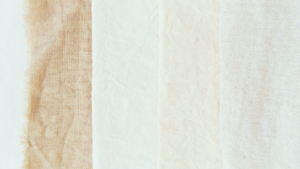
‘Lord, we feel so unworthy in your presence…’ We have all prayed these words or certainly heard them expressed in heartfelt ways. Unworthiness can hit us like a bolt of lightning when convicted of a sin. Or sometimes it settles like an unwelcome cloud over our lives, a shadow of inferiority that not only taints relationships but controls choices we make.
Accused and ashamed
Meet a man who is the picture of unworthiness. It’s in Zechariah 3, and the scene is Joshua the high priest standing before the Lord, an angel of the Lord, and Satan. Now granted, it’s a vision, which means it isn’t recounting something that happened historically. But that doesn’t mean it isn’t true – visions were given to help God’s people see in vivid form what was happening in the unseen realms. And, as it happens, Joshua was the real high priest at the time.
Take a quick read and catch the imagery: Joshua is standing in filthy garments (v3). The priestly clothing which was for holiness, glory and beauty (Exodus 28:2) was covered in foul excrement. I think we’re meant to turn away, mouths and noses covered in disgust. But there is fear and vulnerability too for Joshua. This is the presence of God! There he stands, the picture of exposure, shame and worthlessness. The accuser Satan, true to his name, weighs in with abuse. Joshua typifies our worthlessness.
Reasons for worthlessness
‘Lord, we feel so unworthy…’ There can be different reasons for saying it.
Perhaps it is the Holy Spirit casting light on just how far short of God’s worth and glory we fall. In Zechariah 3:4, the uncleanness of Zechariah’s clothing is linked with his ‘iniquity’. Iniquity isn’t a word we use often. But it captures an angle on our sin that is important: we are fundamentally twisted, perverse, out of line and bent out of shape in relation to God’s will. We are unworthy of God – that’s iniquity. And that’s what Joshua’s filthy clothes represent. But our sense of unworthiness may have a number of other sources. Here are a few suspects:
-
- First, we can compare ourselves against others. I’m not able to speak at the front of church the way he can…I can’t pray in the small group the way she does…my family aren’t all ‘together’ and walking with the Lord the way others seem to be…we could go on. We all know what it’s like to compare our worth against others, and the topics for comparison are as long as the conveyor belt of created things that we put above the Creator.
-
- Our sense of unworthiness is from how others have treated us. Others have acted toward us in ways that are unworthy. We have been misused and abused, leaving us feeling diminished and ashamed. It isn’t that we have sinned, but rather that we have been smeared with the filth of others’ sins against us. Hurtful words that plague our thoughts. Memories that we want to separate off and seal away from our awareness. But the sharp stench pierces back into our life, and like Joshua we stand feeling unclean, vulnerable and afraid. What’s worse is that the sin can feel like our own.
-
- A further possibility is that a sense of our worthlessness can happen in the course of other suffering like depression. Emotional greyness seems to magnify a negative self-evaluation. Depression heightens worthlessness.
Cleansed and clothed
Whatever the cause of our worthlessness, Zechariah envisions hope. First, Satan is rebuked and put in his place (v2). Next, the Lord affirms his love for his chosen people, represented by Joshua. Then, the filthy garments are removed (v4). What relief!
The image calls to mind the removal of sin as far as east from west (Psalm 103) or cast into the sea depths (Micah 7:19). The filthy coat is removed and placed on a scapegoat which disappears into the horizon never to be seen again (Leviticus 16:8-10). Anything unworthy of God – what we have done – what has been done to us – is removed and dispelled from our life.
Then, pure garments are brought, and Joshua is reclothed (v4), fit for a heavenly court in the presence of the Lord. How can this be? Another High Priest came who lived a life of perfect sinlessness – imagine! Tested and tempted, troubled and pressured, yet he remained without sin. Jesus lived a life of goodness, holiness and beauty – a righteousness that becomes the thread and fabric of ‘pure vestments’. True worth! And at the cross he takes the unclean garments of our lives, removing them completely from us, makes them his own, and then says ‘Here, take the robes of my righteousness. They’re yours now. This is who you are. You’re with me.’
The worthlessness of our iniquity is cleansed, and we are given perfect personal righteousness. The worthlessness of our comparisons is taken away and we are now clothed with one who alone was worthy: He says to us ‘I am yours’. The worthlessness of the sin we are stained with is removed and the worthy one replaces it with his beauty adding, ‘And you are mine.’
Our response?
I will greatly rejoice in the LORD;
my soul shall exult in my God,
for he has clothed me with the garments of salvation;
he has covered me with the robe of righteousness,
as a bridegroom decks himself like a priest with a beautiful headdress,
and as a bride adorns herself with her jewels.
Isaiah 61:10 (ESV)